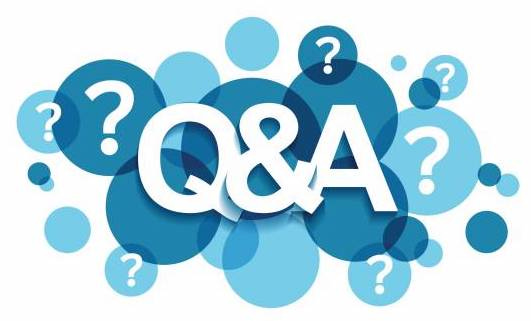3 Things: Chat Module for Webpages, Medical Instacart, T&Cs Summarization
Happy Sunday and a very warm welcome to all the new subscribers! I’m thrilled and honored to have you as readers and truly appreciate your thoughts and feedback 🙏. Each edition of 3 Things will contain a dive into 3 rabbit holes I’ve found myself going down recently and associated business opportunities. Subscribe to get each week’s edition straight to your inbox and if you enjoy it, please share (I suck at self-promotion so can use your help)! This past week I’ve been thinking a lot about:
Chat Module for Webpages
Medical Instacart
T&Cs Summarization
1. Chat Module for Webpages
Most of the internet has been built specifically to optimize around Google’s SEO algorithm. Every time there has been a major update to PageRank like Google Panda in 2011, publishers, marketers and web developers scramble to update their content and sites to make sure they will show up near the top of Google search results for specific queries. One of the 2nd order effects of this is that most content is unnecessarily long as it was commonly believed that longer content ranked higher in Google’s algorithm. This is still an ongoing debate, but there is a good amount of evidence to support this not being a factor that goes into search rank. Regardless, content has gotten insanely long and when you’re reading a blog post on a specific topic or searching for a recipe, you ultimately are going there for a specific job-to-be-done (aka show me the recipe for pan seared salmon with beurre blanc) and not just to read a long article.
With the launch of GTP-3, we’ve seen numerous Chrome extensions that help summarize a webpage such as Summari or TLDR This. These tools are great if you want a summary or bullet points that let you skim an article… kind of like Cliff Notes for the web. Often you’re looking to answer a specific question or pull out a piece of information instead. In these instances, having a chat module where you could ask it a question and it would interrogate the underlying text and provide you with a short answer would make the most sense. A company can offer something very similar to the summarization widgets but focused on chat using ChatGPT so that on the recipe page that happens to be 4,000 words, you can just ask it to provide the recipe and you’ll get the bullet list of ingredients and steps. I think there are instances where starting with ChatGPT itself makes sense but there are many cases where you want to go to a trusted, specific underlying source and query that, not the entire corpus of the internet.
2. Medical Instacart
The term “food as medicine” has been gaining steam and nutrition is finally becoming a way that the healthcare system is trying to help chronic disease patients and also reduce the cost of care. The US spends over $1T annually on care for chronic conditions like heart disease, diabetes, and kidney disease. For diabetes and kidney disease, Medicare already covers 100% of nutrition therapy and through the Affordable Care Act, nutrition counseling is covered for those at-risk for chronic diseases. Some self-insured employers and even commercial health insurance companies are now offering various reimbursements for nutrition-related services, especially for people with chronic conditions or those who are at risk.
While it’s still very early days, and most plans do not cover the cost of food or logistics, we are starting to see a shift in that direction. Many Medicare Advantage plans are starting to cover not just appointments with nutritionists but also food itself and even meal delivery. Companies like Season Health (which raised $34m from Andreessen Horowitz last year) partner with health plans to provide counseling, meal plans, and food for people with specific conditions like diabetes and pregnancy. Other companies focus on specialized nutrition for oncology or a Low FODMAP diet for people with IBS like Modify Health. As more health plans start to cover different areas of “food as medicine”, I think we’ll see a lot of companies popping up to provide specialized care to meet different needs. In looking into this space, one thing that became clear is that just providing nutritional guidance is not enough. You need to physically get the right food to the right person at the right time. There is an opportunity for a company to provide medically-prescribed grocery and meal delivery. As opposed to going direct to consumer, you’d partner with the health plans to onboard their patient populations and ensure you’re following the prescribed regimen. You’d work with the nutritionists and bill the payors so it could be free to the consumer which would make it low-friction to adopt. You could also partner with startups to offer last-mile logistics for their customers.
3. T&Cs Summarization
Since anyone can sue anyone for anything in the US, that means that this country is rife with all types of CYA (cover your a**) legal language. Pretty much everything you do includes fine print and terms and conditions that you must agree to in order to use that product or service. Not only is legal language insanely complex and confusing, it’s also quite verbose in order to make sure they’re covering every possible edge case. You also don’t really have any option on whether you “agree” and almost always, it’s impossible for an individual consumer to read and understand what is written within these terms and conditions without the help of a lawyer.
As a user of the internet, financial services, e-commerce, and pretty much anything else, you’re constantly being asked to check a box saying you agree to the terms and conditions or download and “view” a 100-page document that removes any legal liability from the company. I’d love a tool that summarizes any terms and conditions or agreements that I’m being forced to opt into. I want something that uses easy-to-understand language and short bullet points. Bonus points if it highlighted anything non-standard or nefarious-sounding so that at least I knew what I was opting into. I have zero clue how I’d monetize this as I don’t believe that consumers would be willing to pay and the companies themselves have zero incentive to provide this to consumers unless legally obligated. I do think that this would get pretty rapid consumer adoption and could go viral as people will post some of the most ridiculous things that they discover in various T&Cs. You could start Twitter, TikTok, Instagram, and Subreddit accounts and encourage people to submit the craziest, funniest, and most egregious things they come across.
That’s all for today! If you have thoughts, comments, or want to get in touch, find me on Twitter at @ezelby and if you enjoyed this, please subscribe and share with a friend or two!
~ Elaine
And in case you like podcasts…
From scrap metal to timber, estate planning to freight pooling, the new (un)sexy podcast is a meandering exploration of just how sexy unsexy industries can be.
Join us weekly as we uncover stories of niche and esoteric markets, understanding their history and looking at the future through the eyes of the pioneering entrepreneurs willing to bring technology and exponential improvements to these often overlooked spaces.
Listen now on Spotify, Apple, Google, or wherever you listen to podcasts.




